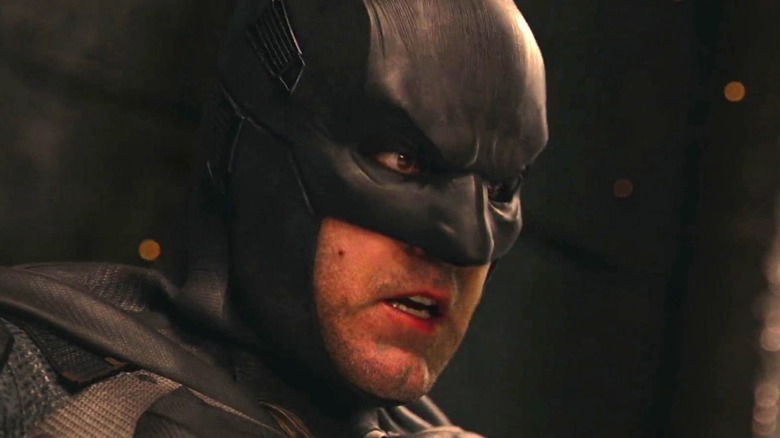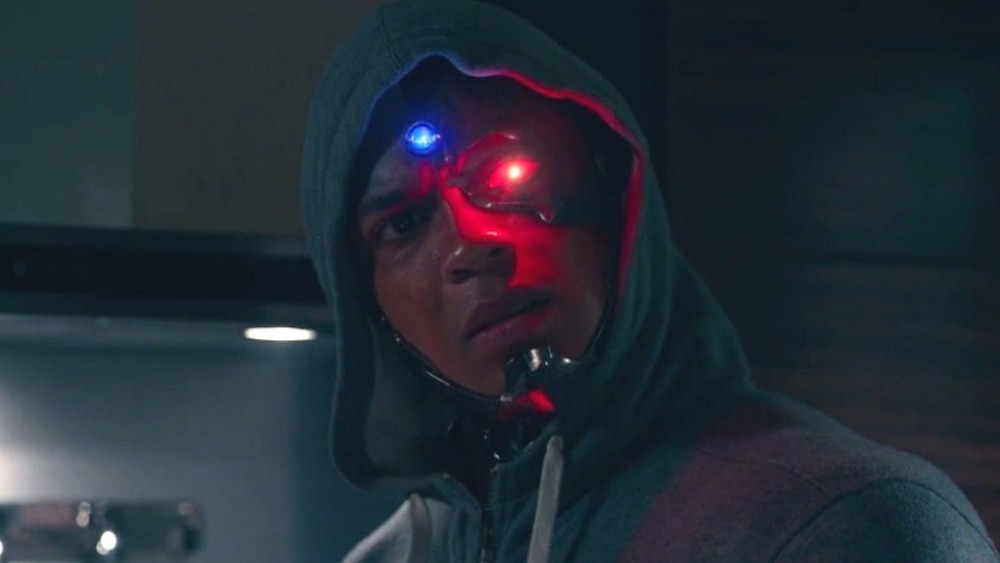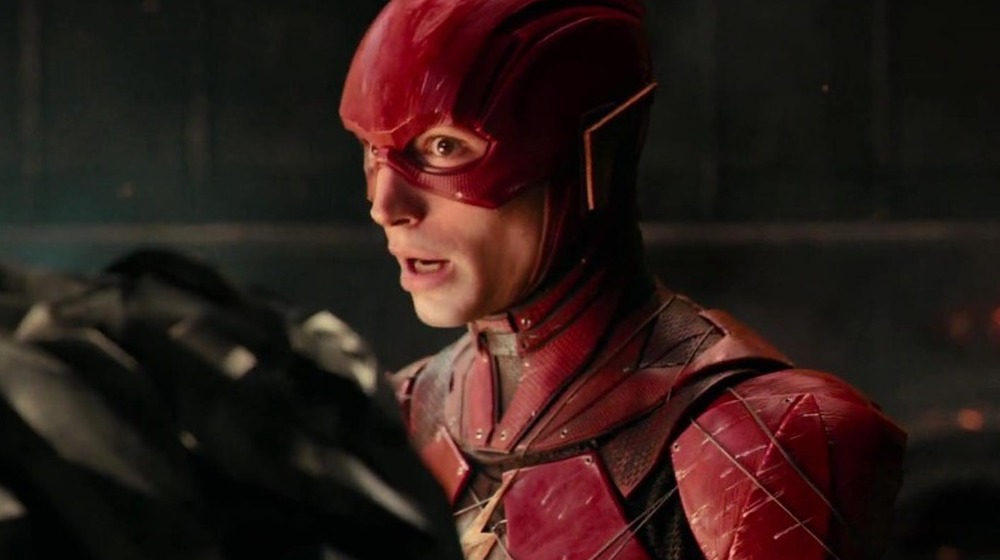The Real Reason Zack Snyder's Justice League Ends On A Cliffhanger
If you click a link and buy a product or service from a merchant, we may be paid an affiliate commission.
Everyone is finally getting the chance to see Zack Snyder's Justice League film on March 18 on HBO Max. And with it comes the promise of the director's true vision. Justice League originally premiered in 2017 and was vastly different from what Snyder had planned. Per SyFy, Joss Whedon stepped in to finish Justice League after Snyder left due to a family tragedy. However, with Whedon's version of the film panned by critics and fans, there's been a big demand to see Snyder's cut for Justice League.
Eager fans may be able to breathe a little easier so far, as early critical reception via Twitter has been mostly positive to the four-hour film. In addition, Snyder has also been forthcoming in explaining some of the reasoning behind his directorial decisions for his cut, especially the initial ending. Without getting into spoiler territory, Snyder's version of Justice League ends on a cliffhanger. And despite no official plans from Warner Bros. for a Justice League sequel related to Snyder's cut, the director still left the initial cliffhanger ending in his film.
Snyder wanted to fully release the movie as originally intended
Speaking to IGN, Zack Snyder detailed some of the decisions he made while revisiting Justice League. While the director noted that he could have changed the ending to tie up and conclude the plot, instead, he to wanted to fully share how he originally intended to release the film, which includes leaving in the cliffhanger ending.
"[The new final scene] mirrors another scene that I had in the movie originally, almost exactly," Snyder said. "I didn't feel like I wanted to change the movie. If we were going to release the movie, I would really want to just release the movie exactly as it was designed, and that is what that scene is really indicative of."
Snyder also noted that ending the film this way felt in tune with how modern superhero movies tend to end. After all, it's standard that superhero movies usually end with some sort of cliffhanger in the final scene or after the credits roll, especially if it sets up future sequels.
"It's in-genre to end these movies on a cliffhanger. That's kind of how they are, and I just felt like that's what I wanted to do," he said. "We had put so much work into, and so much thought into how the stories would continue, that it'd just seemed [sic] unfair to disrespect that work as well."
Don't expect Snyder to direct a Justice League sequel
Although the release of the Snyder Cut and the cliffhanger ending started speculation of the director coming back for Justice League sequels, Zack Snyder already quashed that notion last year. Snyder revealed to Ping Pong Flix that while helming a Justice League 2 would be a great opportunity, he doesn't expect it to happen. Still, he also added that he's proud of where the DCEU has ended up so far, giving additional praise to Aquaman and Wonder Woman 1984.
Keeping the cliffhanger ending with no plans for a Snyder-directed Justice League sequel makes its inclusion kind of bittersweet. It's great that the world will finally see the movie as Snyder intended. But it's potentially a downer, considering what director Kevin Smith revealed about a planned Snyder Justice League trilogy a couple of years ago. According to Smith, Snyder's trilogy would have included the Lantern Corps, epics fights with Darkseid, and a downbeat ending in the second film similar to The Empire Strikes Back.


